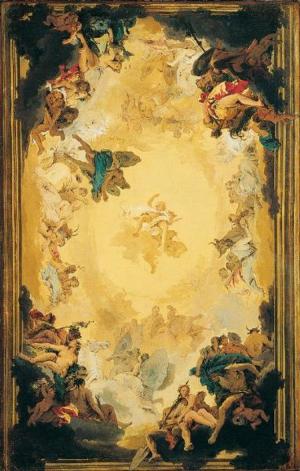Heroes of the Middle Ages
Nonfiction, Religion & Spirituality, New Age, History, Fiction & Literature| Author: | Eva March Tappan | ISBN: | 9781465604477 |
| Publisher: | Library of Alexandria | Publication: | March 8, 2015 |
| Imprint: | Language: | English |
| Author: | Eva March Tappan |
| ISBN: | 9781465604477 |
| Publisher: | Library of Alexandria |
| Publication: | March 8, 2015 |
| Imprint: | |
| Language: | English |
PEPIN THE SHORT had done a great deal to unite the kingdom; but when he died, he left it to his two sons, and so divided it again. The older son died in a few years; and now the kingdom of the Franks was in the hands of Charlemagne, if he could hold it. First came trouble with the Saxons who lived about the lower Rhine and the Elbe. They and the Franks were both Germans, but the Franks had had much to do with the Romans, and had learned many of their ways. Missionaries, too, had dwelt among them and had taught them Christianity, while the Saxons were still heathen. It was fully thirty years before the Saxons were subdued. During those years, Charlemagne watched them closely. He fought, to be sure, whenever they rebelled, and he made some severe laws and saw to it that these were obeyed. More than this, however, he sent missionaries to them, and he built churches. He carried away many Saxon boys as hostages. These boys were carefully brought up and were taught Christianity. They learned to like the Frankish ways of living, and when they had grown up and were sent home, they urged their friends to yield and become peaceful subjects of the great king; and finally the land of the Saxons became a part of the Frankish kingdom. Charlemagne had only begun the Saxon war, when the Pope asked for help against the Lombards, a tribe of Teutons who had settled in Northern Italy. The king was quite ready to give it, for he, too, had a quarrel with them; and in a year or two their ruler had been shut up in a monastery and Charlemagne had been crowned with the old iron crown of Lombardy. This war had hardly come to an end before the king led his troops into Spain against the Mohammedans. There, too, he was successful; but at Roncesvalles he lost a favourite follower, Count Roland. Roland and the warriors who perished with him were so young and brave that the Franks never wearied of recounting their noble deeds. Later the story was put into a fine poem, called the "Song of Roland," which long afterward men sang as they dashed into battle.
PEPIN THE SHORT had done a great deal to unite the kingdom; but when he died, he left it to his two sons, and so divided it again. The older son died in a few years; and now the kingdom of the Franks was in the hands of Charlemagne, if he could hold it. First came trouble with the Saxons who lived about the lower Rhine and the Elbe. They and the Franks were both Germans, but the Franks had had much to do with the Romans, and had learned many of their ways. Missionaries, too, had dwelt among them and had taught them Christianity, while the Saxons were still heathen. It was fully thirty years before the Saxons were subdued. During those years, Charlemagne watched them closely. He fought, to be sure, whenever they rebelled, and he made some severe laws and saw to it that these were obeyed. More than this, however, he sent missionaries to them, and he built churches. He carried away many Saxon boys as hostages. These boys were carefully brought up and were taught Christianity. They learned to like the Frankish ways of living, and when they had grown up and were sent home, they urged their friends to yield and become peaceful subjects of the great king; and finally the land of the Saxons became a part of the Frankish kingdom. Charlemagne had only begun the Saxon war, when the Pope asked for help against the Lombards, a tribe of Teutons who had settled in Northern Italy. The king was quite ready to give it, for he, too, had a quarrel with them; and in a year or two their ruler had been shut up in a monastery and Charlemagne had been crowned with the old iron crown of Lombardy. This war had hardly come to an end before the king led his troops into Spain against the Mohammedans. There, too, he was successful; but at Roncesvalles he lost a favourite follower, Count Roland. Roland and the warriors who perished with him were so young and brave that the Franks never wearied of recounting their noble deeds. Later the story was put into a fine poem, called the "Song of Roland," which long afterward men sang as they dashed into battle.















